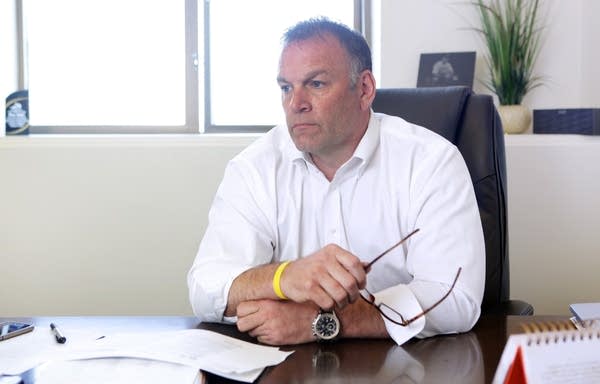Minnesota legislators aim to change how opioids are prescribed

Republican Rep. Dave Baker, pictured in his office on June 1, 2015, has led efforts to expand programs that prevent opioid overdose deaths.
Jeffrey Thompson for MPR News 2015
Go Deeper.
Create an account or log in to save stories.
Like this?
Thanks for liking this story! We have added it to a list of your favorite stories.


